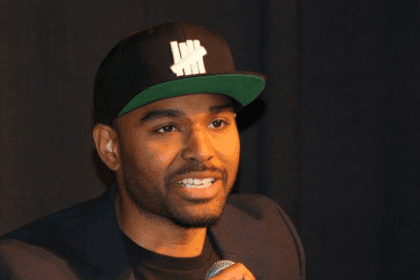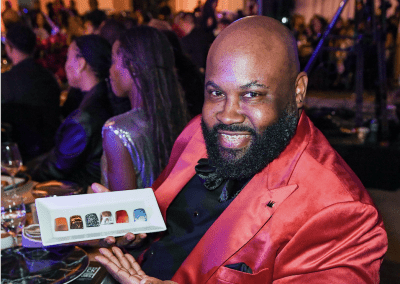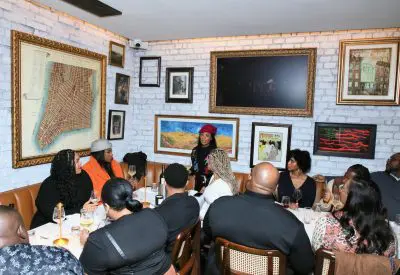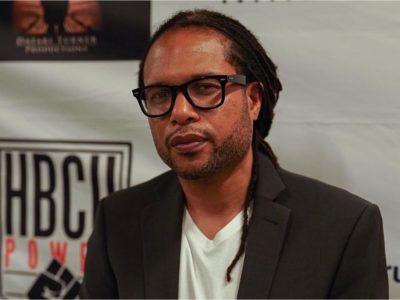
During the decade of decadence, the late ’80s into the mid-’90s, Chicago’s All Jokes Aside comedy club was the home for a burgeoning generation of urban comedic genius.
Star power graced the stage and the audience as everyone dressed to impress the local celebs (such as Michael Jordan) that were likely to drop by.
Being a certified star maker for black comedians such as Steve Harvey, Dave Chappelle, Chris Rock, Jamie Foxx, MoNique, and Bernie Mac, to name a few, couldn’t save Raymond Lambert’s comedy club from extinction, as his new film, Phunny Business: A Black Comedy, illustrates. Phunny Business is directed by John Davies, written by John Davies and Raymond Lambert, produced by Reid Brody, John Davies, Raymond Lambert, and the DP/Editor is Brian Kallies.
Lambert’s indie film has been well-received by critics and has been showcased on the film festival circuit, and he shares with rolling out publisher Munson Steed some valuable lessons he’s learned about the process.
Submit your film and get involved with the film festival circuit.
“This is where all the buyers are going to be and that’s what a festival is, where you can find a buyer or distributor who’s going to pick up the film and buy it, so all the major players are at this festival,” Lambert says.
Choose your festivals very carefully.
“There are five [or] six festivals on the festival circuit that matter: Sundance, Slamdance, Tribeca, South by Southwest, Toronto, and Cannes; those are the five that the industry considers the festivals. They all want to be the world premiere, if I’m admitted to Sundance, I can’t do these other four typically, because they want to be first. You almost have to decide that it’s either going to be one of these five or forget it, which is a very difficult thing to do.
They want to be able to say world premiere at any of these five, and unless you’re DeNiro or Chris Rock, you can do all five. Or these guys from Chicago, they did Hoop Dreams, and they have this new film, The Interrupters, about the gang [violence prevention] group, Cease Fire on the south side.
We got a note from Tribeca, “loved the movie, it’s great, but you premiered at Santa Barbara.” If it’s considered Oscar worthy, you can submit it to there, Oscar consideration for shorts, we would love to have it, but you’ve already premiered at Santa Barbara.
And they all want to be the world premiere.
We did Santa Barbara and it turned out okay. It’s not one of those five or six, but we got a great review from the Hollywood Reporter, that’s a big deal. And from this guy Todd McCarthy, one of the hardest, critics out there, wrote a glowing review of the movie. That was good.
We’ve just finished the last festival at Montreal; of course we’re going to do Black Harvest.”
Competition is stiffer than you think, except for certain kinds of Bblack films.
“There’s a politics to the order. Sundance gets 3,500-4,000 submissions for 75 films; it’s harder to get in Sundance than it is to get in Harvard. And when you’re black, it’s got to be a specific type of film — this is my opinion it’s either paternalistic [or pathological]. A paternalistic film follows some kids in the hood, and somebody comes in and teaches them how to play chess, and then the kids learned how good they were, that they could think, and then they got out of there. A pathological film that [chronicles] it’s gang violence, or drug issues.”
Rolling out publisher Munson Steed adds, or, “if it’s such a big name to it, that they’ve got to let them in the festival, like Chris Rock’s documentary, Good Hair.”
One black filmmaker’s failure or success can affect your pool of possibility.
What’s interesting about that is now they’re using that film, Good Hair, as a reason not to [select and/or fund] black documentaries. They say, “If Chris Rock can’t be successful, what makes you think that yours is going to be?”
There are no guarantees on the film festival circuit, so keep trying.
We didn’t get into the American Black Film Festival. I looked at every film that they selected, and they’re all world premieres. I’m assuming that maybe they were sponsored films. The Kevin Hart film was sponsored, Michael Baisden was sponsored, and every other film was not sponsored. The only way that I knew that was on the website, I never got a notification that was the case.”
Raymond Lambert has set his sights on bringing more festival action to Chicago, perhaps even finding a way to expand the Black Harvest film festival. “I think that Chicago could be an interesting place to do something in the summer. Chicago in the summer is arguably has got to be one of the most beautiful cities.
But the idea is incredibly hard to do, but we’ve got to try to do it.”
Raymond Lambert’s film, Phunny Business,will be shown at the Black Harvest Film Festival from Saturday August 27 thru September 1st.
Video: Raymond Lambert’s Tips for Filmmakers
















